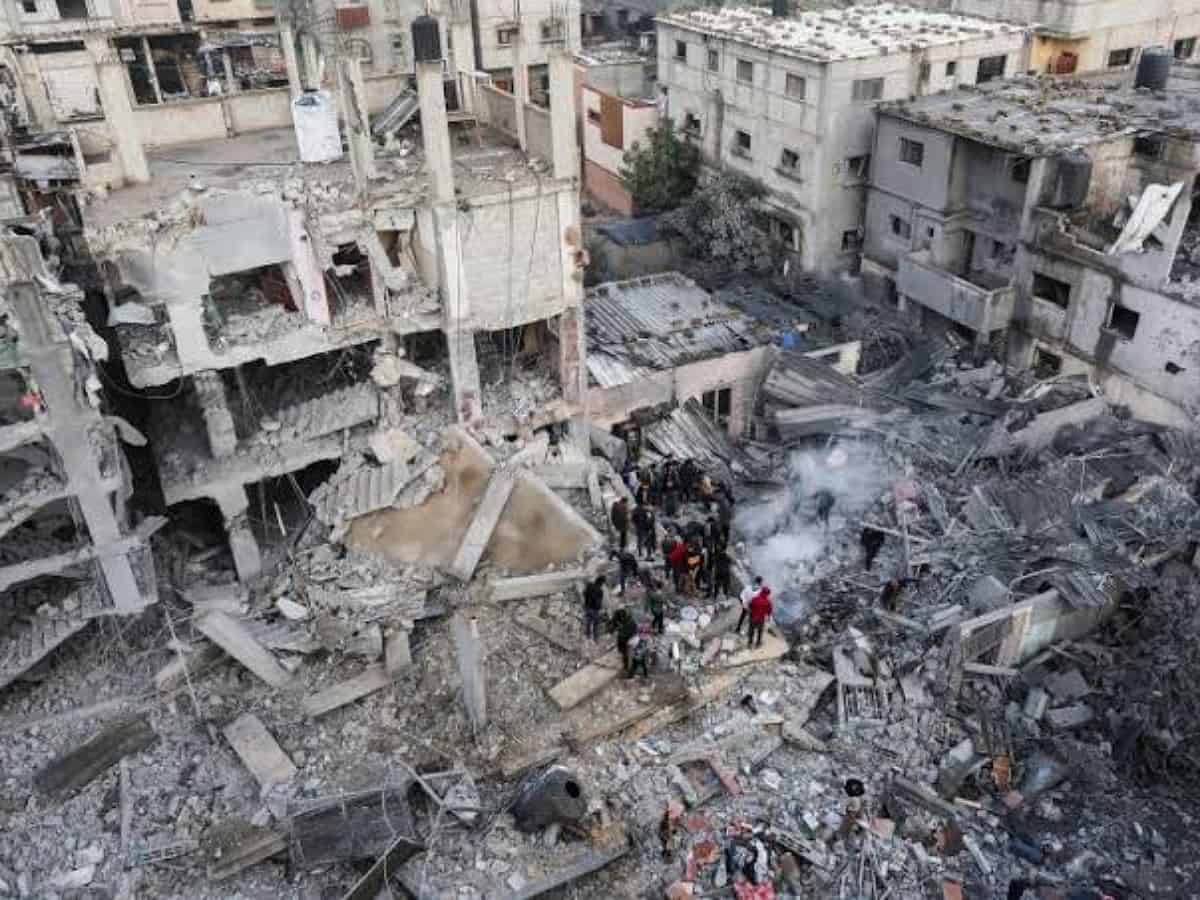
Geneva: The widespread destruction by Israeli forces of civilian infrastructure in Gaza to create a “buffer zone” for general security purposes does not appear consistent with the narrow “military operations” exception set out in international humanitarian law, UN Human Rights Chief Volker Turk said.
Volker Turk, UN High Commissioner for Human Rights, said on Thursday in a media statement that he has stressed to the Israeli authorities that Article 53 of the Fourth Geneva Convention prohibits destruction by the occupying power of property belonging to private persons “except where such destruction is rendered absolutely necessary by military operations”.
The Israeli Defence Forces (IDF) are reportedly destroying all buildings in the Gaza Strip that are within a kilometre of the Israel-Gaza fence, clearing the area with the objective of creating a “buffer zone”.
Extensive destruction of property, not justified by military necessity and carried out unlawfully and wantonly, amounts to a grave breach of the Fourth Geneva Convention and a war crime, Turk added in the statement as quoted by Xinhua news agency report.
“Since late October 2023, my office has recorded widespread destruction and demolition by the IDF of civilian and other infrastructure, including residential buildings, schools and universities in areas in which fighting is not or no longer taking place,” he said.
The UN rights chief added that Israel has not provided cogent reasons for such extensive destruction of civilian infrastructure.
He pointed out that such destruction of homes and other essential civilian infrastructure also entrenches the displacement of communities that were living in these areas prior to the escalation in hostilities, and appears to be aimed at or has the effect of rendering the return of civilians to these areas impossible.
“Forcible transfer of civilians may constitute a war crime,” he stressed.



